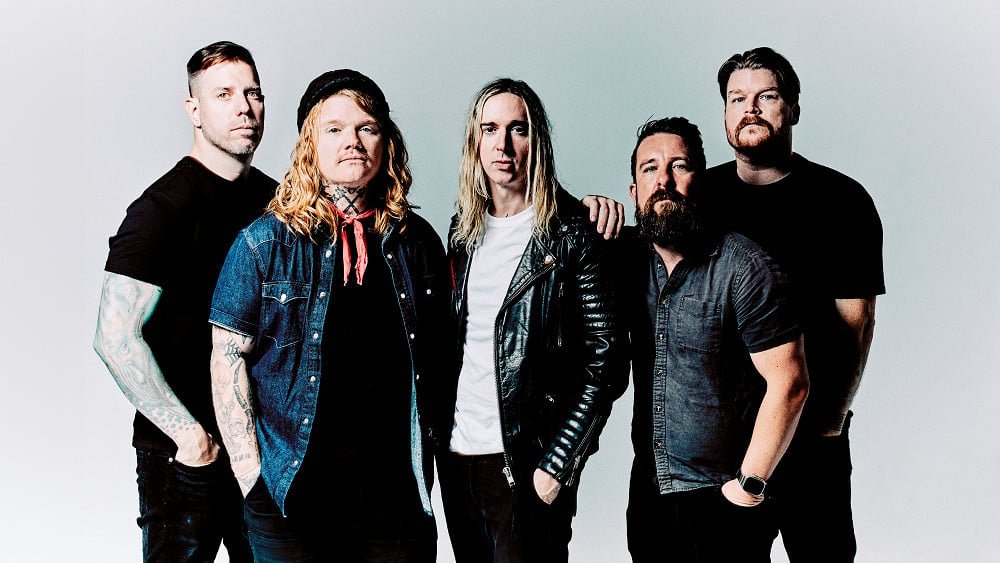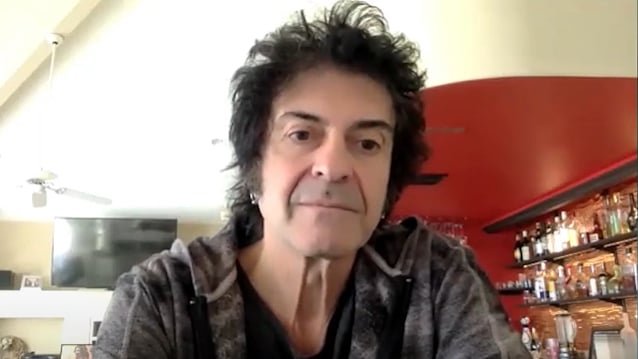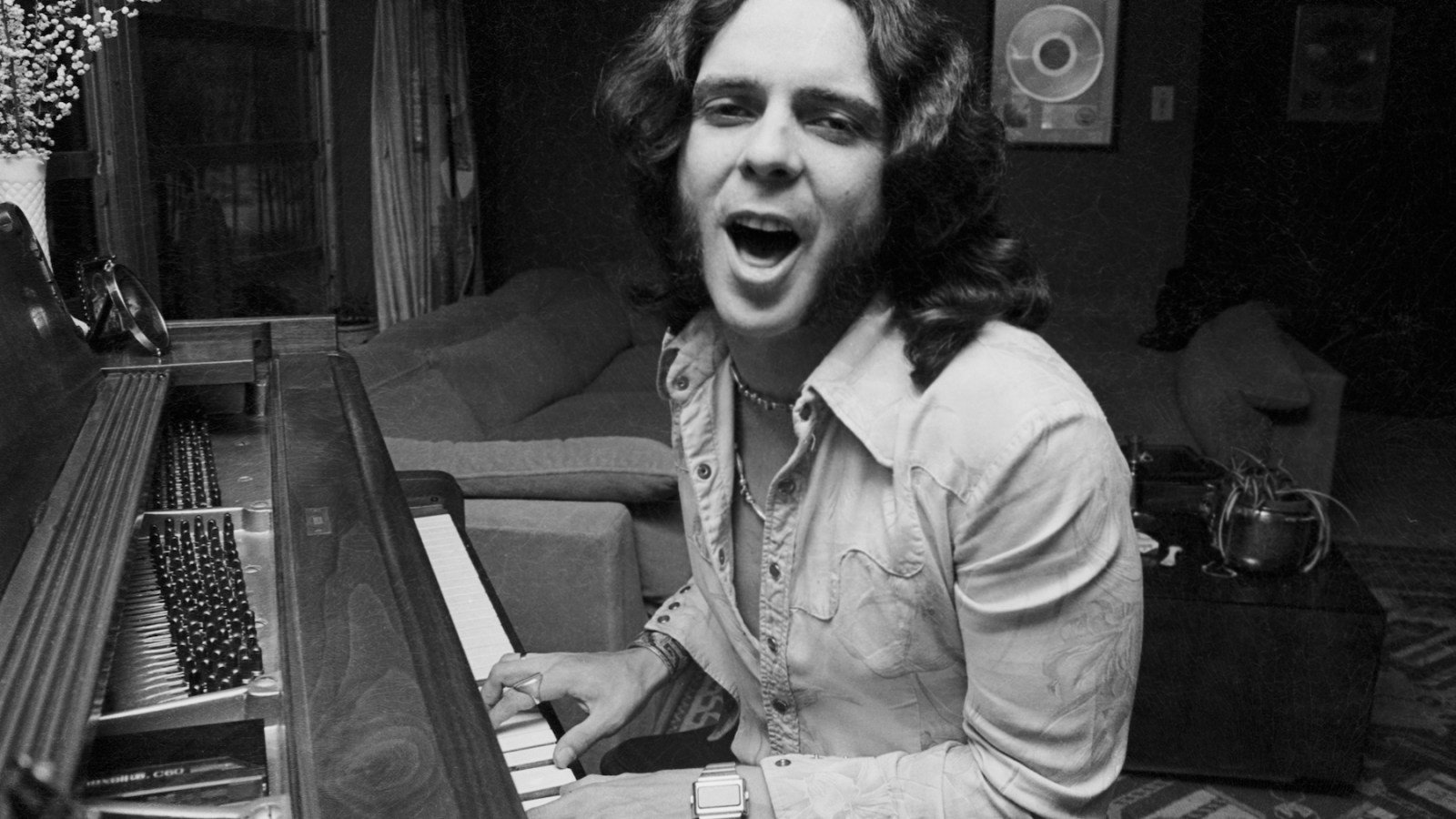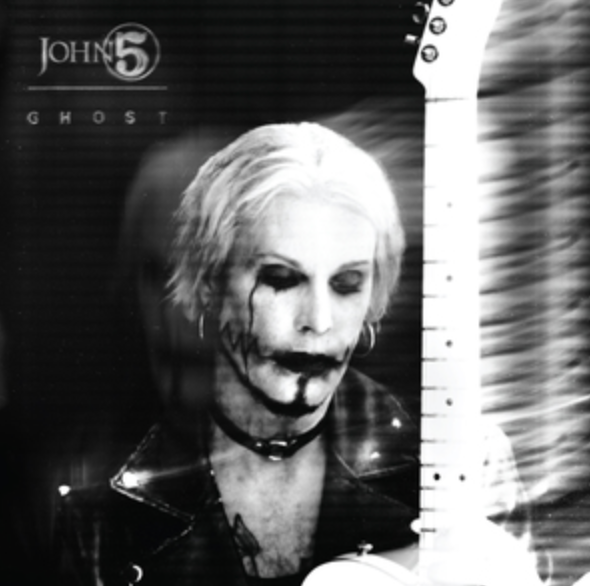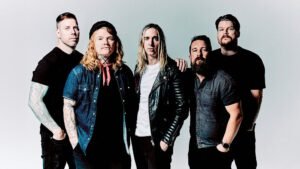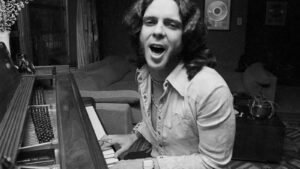Bassist Phil Soussan, who played on Ozzy Osbourne‘s “The Ultimate Sin” album and was credited with co-writing one of Ozzy‘s biggest hits, “Shot In The Dark”, discussed his time as a member of the legendary BLACK SABBATH singer’s solo band during an appearance on the “Talk Is Jericho” podcast, hosted by FOZZY frontman and wrestling superstar Chris Jericho. Soussan said (as transcribed by BLABBERMOUTH.NET): “I see Ozzy‘s career as having gone in three chapters. There was the first chapter where he was the bat-biting Satanist of the underground heavy metal movement, and everybody was convinced that he was the Devil incarnate here [in the U.S.]. [He was] probably not as big as you would think in Britain [at the time]. I think [he was] quite underground. BLACK SABBATH were always underground. They were always there, but metal has this tendency of going underground and then coming to the surface and going underground, but it’s always present. It just happens to be in different states of recognition. The second chapter of Ozzy‘s career, I think, was a pivotal moment when he went from that to being a household name. And that happened as a result of ‘The Ultimate Sin’, it happened as a result of ‘Shot In The Dark’. And so when that song came out, all of a sudden it was his first commercial hit. We were pegging the MTV charts; I think we were number two for six months. We were all over the radio stations, and it really transitioned Ozzy Osbourne into a household name, into a commercial, recognized name. So, after that, of course, came the TV show and all of that, which sort of showed his kind of humorous tongue-in-cheek side. But, for me, being part of that pivotal moment was remarkable.”
Phil continued: “I flew on Concorde [supersonic passenger airliner] one time, the plane, and when you take off, they can’t fly supersonic over land ’cause it would destroy all the windows and shit. So they sort of fly at a sort of normal speed, and then they say, ‘Once we’re over the coast of Ireland, we’re over the ocean, we’re gonna accelerate.’ It was the same as that. All of a sudden the plane just goes [super fast], and you feel like you’re taking off times three. Same thing with Ozzy. There was this career, and then all of a sudden this single comes out and a whole new world opens up. I think we were all surprised, including Ozzy, and that really cemented him into the public eye as a household name, as somebody who was a personality.”
Soussan added: “The third part of his career, I think, is probably the most important, where he sort of went back to revisiting who BLACK SABBATH were, who early Ozzy was, with the additional artillery of commercial success. And that all of a sudden started influencing all of these bands. I mean, it started with the grunge thing, and then it went on, and that’s his legacy. That’s where you see so many bands — so many bands in this world — who have a direct tie of influence to someone like Ozzy. And that is his legacy. That’s what people are going to remember him for. And those bands are gonna be there for a long, long time into the future, and they’re going to be protecting his legacy a long time into the future. So it was quite a rollercoaster ride, in a simple sense.”
Back in May 2021, Soussan discussed his decision to leave Osbourne‘s band during an appearance on “The Five Count” radio show. Asked about the “weirdness” that went on between him and Ozzy‘s camp following his exit from the group, Phil said: “Let me clear this up once and for all. There wasn’t that much weirdness that was going on. I think what happened was I was in a position where I was not able to cut the deal that I wanted. I wanted to do certain things; I wanted to cut a certain type of deal. And kudos to Sharon [Ozzy‘s wife and manager]. Listen, she basically presented this to us in a very simple way. We were there, and we were being hired to do our best work — the best work that we could possibly do to make Ozzy sound and look as good as he possibly could. And we also knew that if we were not okay with that situation, there’s probably three dozen people waiting in the wings that would gladly come along and do what we were doing.”
He continued: “It got to a point where I was being expected to write more songs, and I wanted to kind of boost up my publishing and what have you, and for whatever reason, I was not able to cut a deal that was acceptable with Sharon, and I couldn’t really get the same deal that I wanted. And at the moment, I just said, ‘It’s time for me to move on.’ And it was a difficult decision — you leave the biggest band in the country. But I said, ‘You know what? I’ve done it all once. I did one round, one tour, one this, one that, and let me move on and see what happens.’ And I left. And I think she might have been a little upset about that, about the fact that I left. But for whatever reason, we had some accounting issues. So all of a sudden, I was having a hard time getting paid, and my accountants went back and forth a few times. And all of this got resolved eventually. It was just a payment thing — it was, like, late payments and stuff. And I don’t know what the motivation was, or whatever it was, or if there was even a motivation — maybe it was just ‘out of sight, out of mind’ — but once I wasn’t in the band, people weren’t jumping to take my call about things like that. So it got resolved, and it got resolved in probably 1992 or 1993. And ever since then, everything’s just been fine.”
Soussan went on to say that he has heard “some really weird stories” about why he supposedly left Ozzy‘s band, including that he had sued Osbourne over unpaid royalties. He clarified: “I was asked to join a lawsuit that [former Ozzy bassist] Bob Daisley had, but I never joined that lawsuit; I didn’t have anything to sue anybody about. I think Bob and Lee [Kerslake, former Ozzy drummer] had some issues that were going on, but when they called me, I just said the same thing I just said to you. I said, ‘Why would I wanna do this?’ So that was it. But all of a sudden, you hear these stories that we were in court. We never went to court. I never sued anybody.”
“The Ultimate Sin” reached No. 6 on the Billboard 200 chart and was certified platinum in the United States on May 14, 1986, by the RIAA and and double platinum in October 1994. It was the follow-up to “Bark At The Moon”, which was the first Ozzy album to feature Jake E. Lee on guitar following the tragic death of Randy Rhoads.
The writing sessions for “The Ultimate Sin” were by disagreements over songwriting, with Jake, who claimed he had been cheated out of the credits he deserved on “Bark At The Moon”, later telling Ultimate Classic Rock that he demanded a revised contract before agreeing to contribute. Daisley was dismissed during the making of the LP and Soussan was brought in as is his replacement. Ozzy later invited Daisley to come back to help with the lyric writing, which Bob had shouldered the bulk of since the start of the singer’s solo career.
Six years ago, Ozzy said that “The Ultimate Sin” was his least favorite album he has ever released as a solo artist. Although it was out of print physically at the time (but available on streaming services),the 1986 LP has been certified double platinum. “[Producer] Ron Nevison didn’t really do a great production job,” Ozzy told Rolling Stone. “The songs weren’t bad; they were just put down weird. Everything felt and sounded the fucking same. There was no imagination. If there was ever an album I’d like to remix and do better, it would be ‘The Ultimate Sin’.”
Daisley, who is credited with all the lyrics on “The Ultimate Sin” apart from “Shot In The Dark” (which is credited to Soussan and Osbourne),later said he was also heavily involved with the music writing on the LP.
“I did write the album with Jake and then Ozzy and I had a falling out and he fired me and he was going to fire Jake as well,” Bob explained in an interview. “I’ve never been a ‘yes’ man. So a few weeks later, he called me and he had Phil Soussan on bass but I’d already written a lot of the music with Jake, so they knew they had to credit me on the songs anyway, so I guess he thought he may as well get his money’s worth and asked me to come back and write the lyrics also. I did that as sort of a paid job. I write it, you pay me and take it and go. So I spent a few weeks writing the lyrics for the whole album. Then they recorded it. In a way, I am glad I am not on that album. It’s the one album I didn’t really like.”
